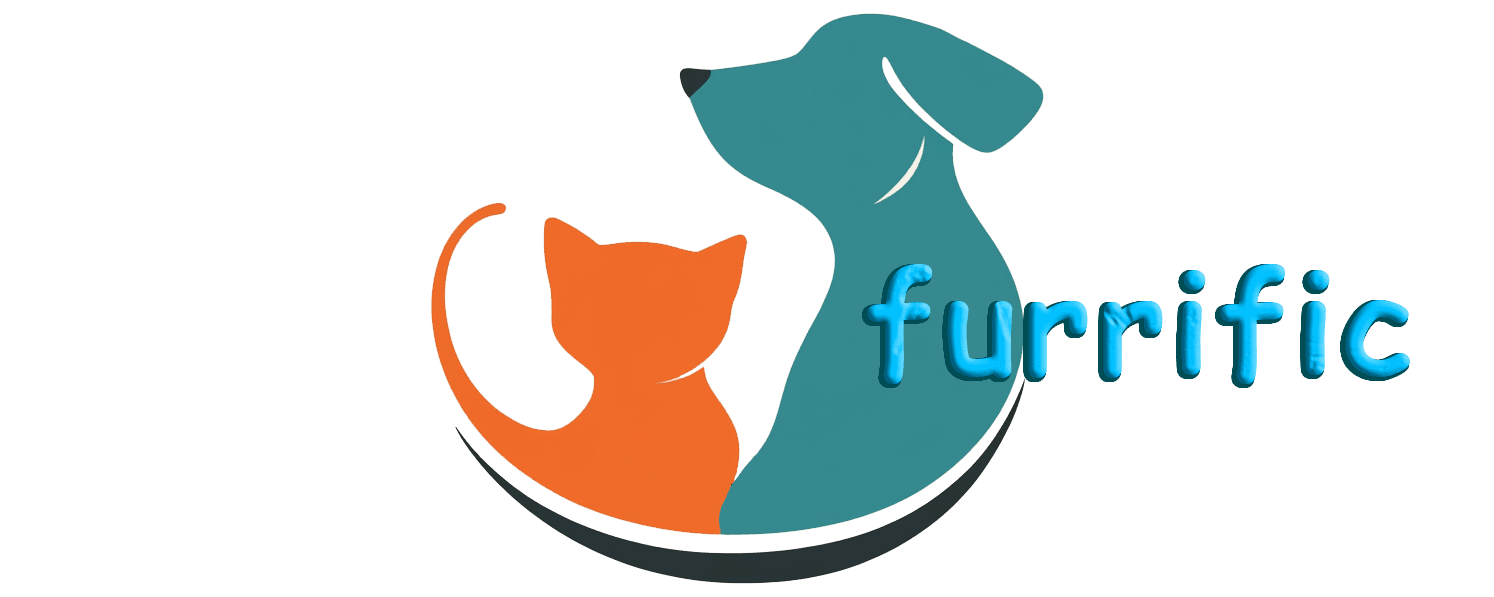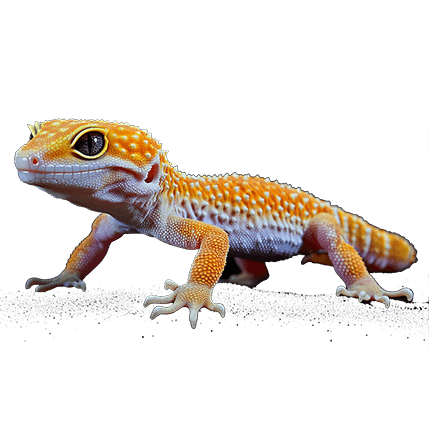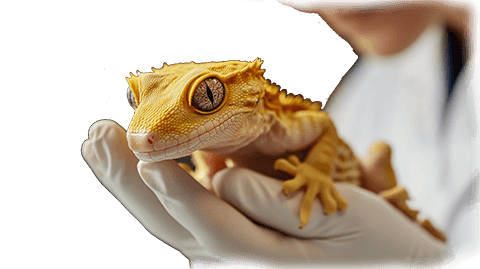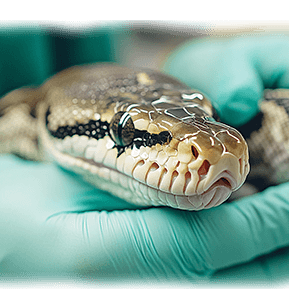Bearded Dragon Health: A Comprehensive Guide
Bearded dragons are generally hardy reptiles, but they are still prone to certain health issues if not cared for properly. By understanding common health problems and providing the right care, you can help ensure your bearded dragon leads a long, healthy life. This guide will cover the key aspects of bearded dragon health, signs of illness, and preventive tips to keep your pet thriving.
Signs of a Healthy Bearded Dragon
A healthy bearded dragon should exhibit the following:
- Active behavior – Your bearded dragon should be alert and active during the day.
- Clear, bright eyes – Their eyes should be free from discharge and should appear alert.
- Regular appetite – Bearded dragons should show interest in food, especially their daily greens and insects.
- Healthy skin and scales – Skin should be smooth and free from sores or discoloration.
- Normal shedding – Young dragons shed frequently as they grow, while adults shed less often. Shedding should be regular and complete.
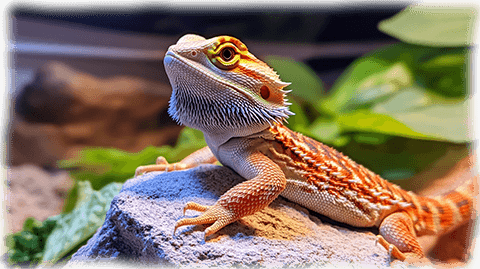
Common Health Issues in Bearded Dragons
Metabolic Bone Disease (MBD)
One of the most common health issues in bearded dragons, Metabolic Bone Disease (MBD) occurs when there is a deficiency in calcium or vitamin D3. This can lead to weak bones, deformities, and even paralysis.
Symptoms of MBD
- Lethargy or lack of movement
- Soft or rubbery jaw and bones
- Difficulty walking or climbing
- Tremors or muscle twitching
Prevention
- Provide adequate UVB lighting – Bearded dragons require UVB light to synthesize vitamin D3, which helps them absorb calcium. (Amazon affiliate link)
- Supplement with calcium and vitamin D3 – Use calcium supplements with vitamin D3 to ensure proper bone health. (Amazon affiliate link)
- Maintain a balanced diet – Feed a variety of leafy greens and gut-loaded insects to provide calcium and other essential nutrients.
Respiratory Infections
Respiratory infections can develop when bearded dragons are kept in environments with improper humidity or temperature levels. These infections can range from mild to severe, affecting the lungs and respiratory system.
Symptoms of Respiratory Infections
- Wheezing or gurgling sounds when breathing
- Labored breathing or open-mouth breathing
- Nasal or eye discharge
- Lethargy and lack of appetite
Prevention
- Ensure proper temperature gradients – Bearded dragons need a basking spot of around 95-110°F and a cooler area of 75-85°F. (Amazon affiliate link)
- Keep humidity levels low – The enclosure should have a humidity level of 20-40%. Excess humidity can lead to respiratory issues.
- Clean the enclosure regularly – Remove waste and uneaten food to prevent bacteria buildup that can lead to infections.
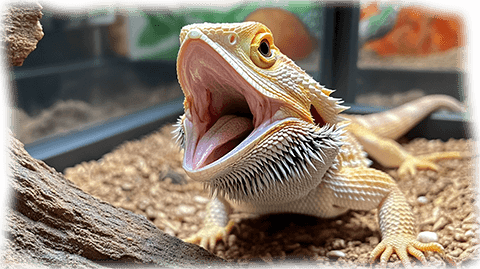
Impaction
Impaction occurs when a bearded dragon ingests substrate, undigested food, or foreign materials, which can lead to a blockage in their digestive system.
Symptoms of Impaction
- Lack of appetite
- Lethargy
- Swollen or firm abdomen
- Difficulty defecating
Prevention
- Use a safe substrate – Avoid loose substrates like sand, which can be accidentally ingested. Use paper towels, reptile carpet, or tile. (Amazon affiliate link)
- Monitor feeding – Ensure the insects you feed are appropriately sized (no larger than the space between your dragon’s eyes) and gut-loaded with nutritious food.
- Provide a warm basking spot – Proper heat helps your bearded dragon digest food and pass waste efficiently.
Parasites
Internal and external parasites, such as mites or worms, can affect your bearded dragon’s health. Parasites are often introduced through contaminated food, substrate, or contact with other infected reptiles.
Symptoms of Parasites
- Weight loss or poor growth
- Diarrhea or irregular stools
- Lethargy
- Visible mites on the skin
Prevention
- Quarantine new animals – Always quarantine new reptiles before introducing them to an established enclosure.
- Regular vet check-ups – Have your vet perform routine fecal exams to check for internal parasites.
- Maintain a clean environment – Regularly clean the enclosure and accessories to prevent the spread of parasites.
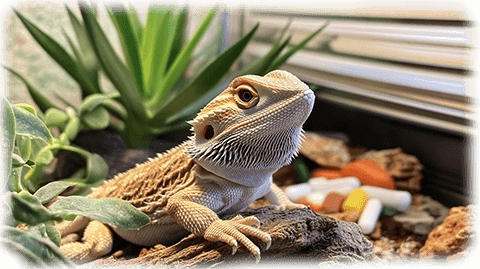
Mouth Rot (Infectious Stomatitis)
Mouth rot is a bacterial infection of the mouth that can occur due to poor oral hygiene, injury, or a weakened immune system.
Symptoms of Mouth Rot
- Swollen or red gums
- Discharge from the mouth
- Yellowish or whitish patches in the mouth
- Lack of appetite
Prevention
- Regularly check your bearded dragon’s mouth – Look for signs of swelling or infection.
- Ensure proper diet – A nutritious diet helps support the immune system.
- Keep the enclosure clean – Prevent bacteria buildup by regularly cleaning the environment.
Routine Care Tips for Bearded Dragon Health
To prevent health issues and ensure your bearded dragon stays in top shape, follow these routine care tips:
- Provide a balanced diet – Feed a mix of leafy greens, vegetables, and protein (insects) to meet their nutritional needs. Be sure to vary their diet to avoid deficiencies.
- Maintain proper temperatures – Use thermometers in the basking and cool areas of the enclosure to ensure the correct temperature gradient. Multivitamins (Amazon affiliate link) are a great addition to ensure your bearded dragon’s diet is balanced and nutrient-rich. (Amazon affiliate link)
- Regularly change the UVB bulb – UVB bulbs lose effectiveness over time, so replace them every 6-12 months, depending on the manufacturer’s guidelines.
- Keep a regular cleaning schedule – Spot clean daily and do a full cleaning of the enclosure and accessories at least once a month.
- Monitor their weight and behavior – Keep an eye on their weight and energy levels to detect early signs of illness.
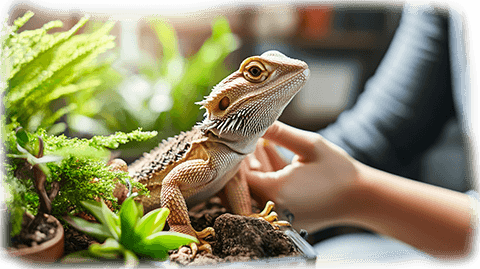
When to Visit the Vet
It’s important to monitor your bearded dragon for any signs of illness or discomfort. If you notice any of the following symptoms, seek veterinary care as soon as possible:
- Lethargy or lack of energy
- Loss of appetite for more than a few days
- Labored breathing or open-mouth breathing when not basking
- Swollen or firm abdomen
- Visible signs of infection, such as mouth discharge or skin lesions
Final Thoughts
Bearded dragons are resilient pets, but they need the right care to avoid common health problems. By ensuring their environment, diet, and routine care are appropriate, you can help your bearded dragon live a long, healthy life. Regular vet visits and early intervention when problems arise will also contribute to their overall well-being.
Reading materials: “Bearded Dragon Care. Bearded Dragon Pet Owners Guide. Bearded Dragon care, behavior, diet, interacting, costs and health” (Amazon affiliate link) by Ben Team.
Affiliate Disclosure
This post may contain affiliate links, which means I earn from purchases made through links. Please see the privacy policy page for more details.
